Driven By Bullying, Suicide, Grief And Trauma – How These Entrepreneurs Are Scaling Mental Health
I intentionally describe myself as a “writer,” not a “therapist” on my Hinge profile. Don’t get me wrong, I’m proud of what I get to do for a living; however, the dudes who aren’t immediately scared off because they think therapists can read minds will inevitably ask how I got into psychology – and I just prefer to save the “wounded healer” monologue for in-person.
Indeed, like most mental health professionals, I was drawn to the field in an attempt to understand and cease my own suffering. I’d been knowingly struggling with eating disorders, and unknowingly struggling with depression and anxiety, for years. And so true to my angsty teenage “I’ll figure it on my own!” mentality, I decided to dedicate myself to understanding and helping others – hoping by doing so I could understand and help myself.
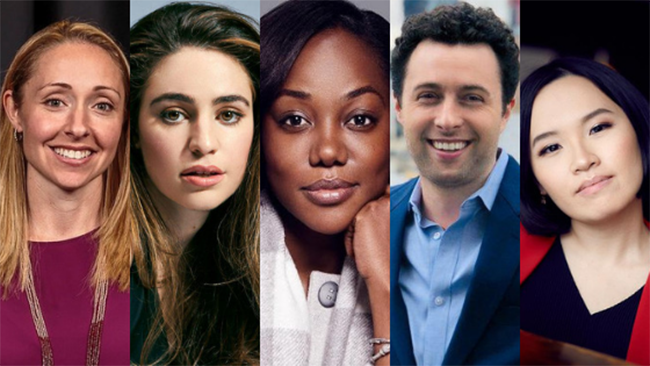
And while nearly two decades later I’m still uncovering new layers of my psyche, I’m grateful for the pain that inspired my mission to help humans like themselves – and their lives – a little more. We’re in the midst of a global mental health crisis: as the leading cause of disability worldwide, 300 million people live with depression. Close to 40 percent of the population are affected by an anxiety disorder in their lifetime; Nearly 70 million people worldwide struggle with eating disorders, and one person around the world dies by suicide every 40 seconds. And Time Magazine declares Instagram – with close to a billion users – the worst social media app for mental health, stating it’s “associated with high levels of anxiety, depression, bullying and FOMO, or the ‘fear of missing out.'” And all of these numbers are rising.
So in conclusion of mental health awareness month, I’ve compiled the powerful stories and advice from five entrepreneurs scaling help and hope – because when it comes to mental health, most of our missions came out of a mess.
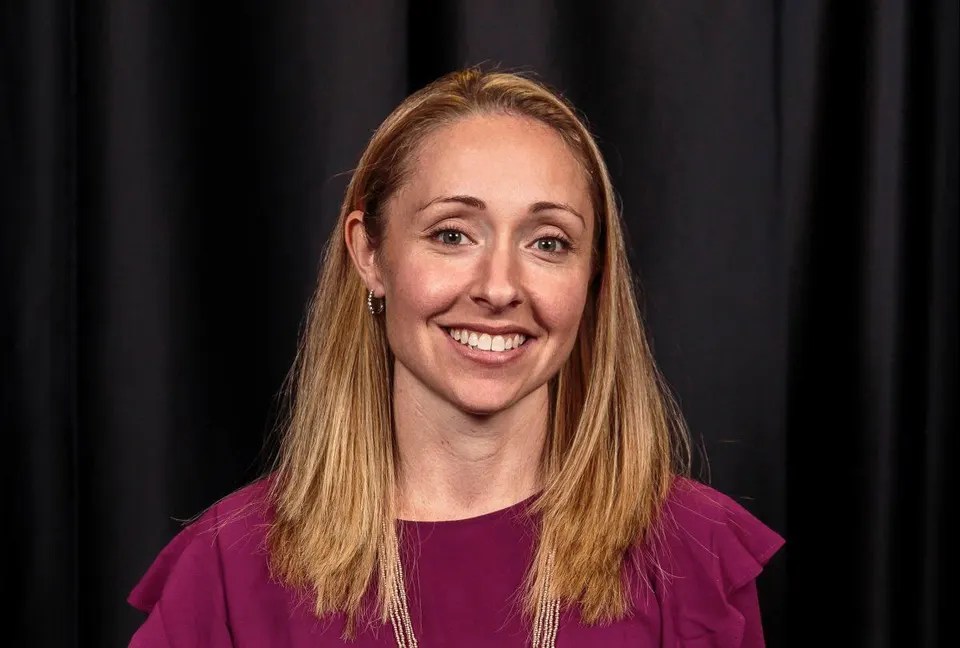
Alison Malmon, Founder and Executive Director of Active Minds
As the nation’s premier nonprofit dedicated to changing the conversation about mental health, Active Minds provides award-winning programs to more than 700 colleges, high schools, workplaces, and communities. With a focus on saving lives, the organization s is dedicated to creating a culture that encourages an open dialogue about mental health. Through their chapters, in-person trainings and programs, product, fundraisers, and robust social media presence, Active Minds reaches more than 500,000 people in-person and an additional 250,000 people online with critical mental health messaging every year.
Bruneau: What’s the story behind Active Minds?
Alison Malmon: I was a freshman at the University of Pennsylvania when my brother Brian, my only sibling, died by suicide. Brian had been a college student who had started struggling with his mental health in his freshman year — yet he didn’t tell anyone until his senior year. Shortly after reaching out for help for the first time, he took a leave of absence from his school to get help at home…but he ended up taking his life about a year later.
After Brian’s death, I became interested in mental health. I learned the typical age of onset of most mental health issues is high school and college; that suicide is the second leading cause of death for college students; and that a large number of young adults were struggling though no one was talking about it. This propelled me to form Active Minds as a student group on my campus. When I graduated in 2003, I started the nonprofit to mobilize young adults to change the conversation about mental health at their schools, in their families, and in their communities.
Today, I believe Mental health is the social justice issue of the next generation – and Active Minds is proud to be at the center of it all.
Bruneau: What has your work with Active Minds taught you?
Malmon: Active Minds has opened my eyes to understanding that everyone has a story. We will often only see the successes of other people, with perfection and smiles in front of us, and so often feel so alone in our loneliness. But behind it all, for all of us, is a story. At Active Minds, we really focus on the fact that we may not all have mental illness, but we all have mental health . And, we all need and deserve to take care of our mental health just as we do all other health issues and whether you are someone who struggles daily or has a diagnosis or just needs to run or journal to keep your balance, we’re not all that different and there is so much power in recognizing our collective stories.
Bruneau: What mental health advice can you share with us?
Malmon: My advice to everyone – whether struggling or just figuring out how to maintain positive mental health – is that your mental health is a core part of your overall well-being, and is as important to take care of as all other health issues. No struggle is your fault, and you deserve to get the help and support you need. It’s okay to not be okay . But the world needs you here and we all are here for each other.
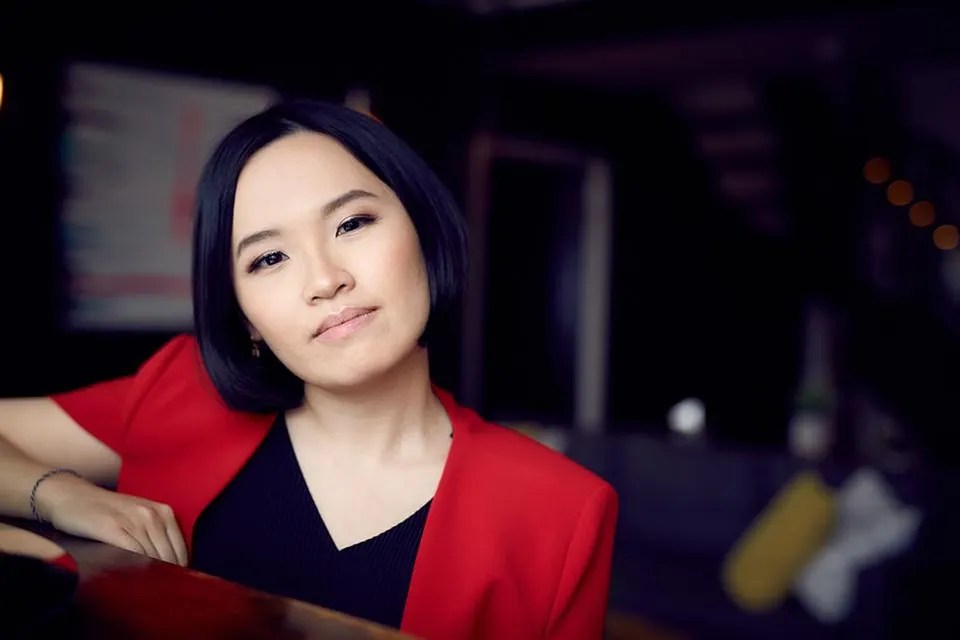
Cherry Rose Tan, Founder and CEO of For Founders By Founders
By sharing entrepreneur mental health stories, For Founders By Founders is the mental health movement for the tech industry. Despite the glamorization of foundership and startup culture, entrepreneurs are particularly vulnerable to mental health challenges. For Founders By Founders endeavors to create human spaces for brave conversation, so that no one suffers alone.
Megan Bruneau: What’s The Story Behind For Founders By Founders?
Cherry Rose Tan: I’ve been an entrepreneur for 14 years, a journey I shared with my brother. We both worked in the tech industry, but when he passed away unexpectedly a year and a half ago, I hit rock bottom. Within the four-month span that I lost my brother, my mom was diagnosed with cancer and I was involved in a major car accident. I was grieving, processing trauma, and in pain – and I didn’t know which colleagues I could speak to. It made me realize that we rarely, if ever, speak about mental health in the tech world.
Bruneau: What have you learned from your work with founders?
Tan: As an executive coach, I specialize in addressing the stories and beliefs that hold us back by creating shame, judgment, or guilt. The tech industry is extremely competitive and people are often pretending in order to make it. They lie to their co-founders, their investors, and their spouses because there is a pressure to perform. As a result, our emotions directly affect the way we lead.
Being privy to these private conversations, it made me realize that we need to allow founders to feel . The entrepreneurial journey is an emotional one and founders need a safe space to be themselves as human beings, not human doings. The future of work will depend on society being able to accept, process, and embrace our emotions.
Bruneau: What mental health advice can you share with us?
Tan: The most important piece to mental health is to love yourself first. There is a saying, “When the plane is falling, put on your mask first before saving others.” Often times, we are tempted to say Yes to every event and every commitment. But at the end of the day, entrepreneurship is a marathon, not a sprint. We need to choose ourselves first, to ask ourselves each day what we want and what we need. And for anyone struggling with mental health, know that you aren’t alone. I have been amazed by the generosity of my community when I asked for help. So many people care, but you need to take the first step and ask for help. People cannot help when they are unaware of the problem, and when you share, you give your loved ones the privilege of loving you. Take the first step and know that the right people will find you.

Aija Mayrock, Writer, Actress and Activist
With hundreds of thousands of social media followers, Aija Mayrock uses writing and performing to connect, educate, and advocate for mental health. The author of the international bestseller “The Survival Guide To Bullying,” she performs poetry and spoken word around the world empowering young people to cultivate resilience. And her powerful voice resonated – so much so that she’s developed a school curriculum implemented by communities across the country.
Megan Bruneau: What’s the story behind your mission?
Aija Mayrock: I was bullied for eight years of my life, and during that period I struggled the most with my mental health. I turned to writing, and used it as a way to cope and heal. I wrote my first book and realized the impact of writing and performing poetry about mental health. Recognizing it allowed people to open up and find their own voice, I began performing lives and creating content, and I built a global online community.
Bruneau: How has your work shifted your perspective on humanity?
Mayrock: As I say in my book, “ We all fight our own battles each day. We all must be accepting of our wounds that don’t always fade away.”
I realized that everyone has their demons, including the bullies, the trolls, all of them. My work has made me empathize in a way I never thought I could. I used to write for my younger self, the girl that was bullied and struggled with mental health, but now I try to write for the bully, the bystander – for anyone. Because when it comes to mental health, no one escapes that struggle .
Bruneau: What mental health advice can you share with us?
Mayrock: I believe that maintaining positive mental health is a lifelong process – it’s knowing that self-care is more than face masks and yoga.
It’s facing your demons, seeking help if you need it, and figuring out what your mental health care routine needs to be.
For anyone struggling with mental health, I want you to know that even when it feels like no one is listening to you – there are people there.
Help is always an option and it’s the best option. It does get better.
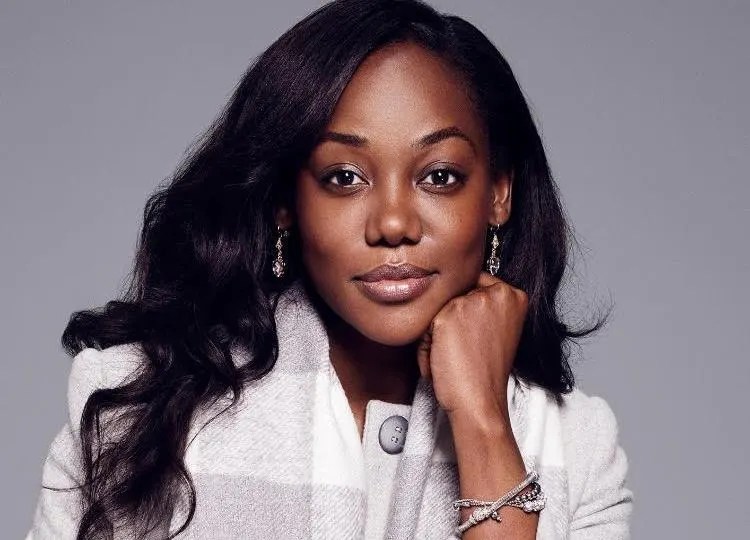
Bea Arthur, Founder and CEO of The Difference
Believing that the right talk at the right time can make all “The Difference,” Bea Arthur is on a mission is to make sure everyone has someone to talk to on a bad day. She and her team built Amazon’s first Alexa Skill for therapy, providing a resource for the 77% of American counties that report a therapist shortage – connecting users with a professional therapist in 30 minutes or less (users can also connect via hotline or online platform).
Bruneau: What’s the story behind The Difference?
Arthur: I became one of the pioneers of the e-therapy movement, launching one of the first companies (In Your Corner, YC S14) to deliver care online. We helped people in 30 countries for five years, and I’ve been at the intersection of psychology and technology since then. Before that, I worked with domestic violence survivors, addicts in recovery, and even in the New York City public school system. I’ve worked with all kinds of people at every age and every stage, and have seen firsthand that the main barrier to getting help is access. For an industry that’s meant to reduce stress, there are so many stressful steps to get started – even with good health insurance! So I wanted to make it as easy as calling your mom…except we won’t guilt trip you.
Bruneau: What has your journey taught you?
Arthur: A lot of people have the misconception that therapy is for people who don’t have friends they can talk to. But there are some things we’re not ready to admit to the people closest to us, or even to ourselves. It helps to have an objective perspective from someone who won’t judge or react in a way that makes us feel shame, yet we feel anxiety or depression if we can’t figure it out by ourselves. Therapists help you think through it and come up with solutions. It’s such a powerful service, but unfortunately, because dealing with insurance can be such a headache so therapists go to private practice and have to charge high rates to support themselves. That’s why therapy is priced as a luxury, a “nice to have,” when we know by now it should be seen as a must-have. Doctors have confirmed: there is no health without mental health.
Bruneau: What mental health advice can you share with us?
Arthur: I think social media has made us judgmental of others, which makes us think that others must be constantly judging us as well. So we’re very self-critical, which of course affects our self-esteem, especially for young people, who are already self-conscious. I gave a talk about our Culture of Comparison and how we need to regularly take social media breaks. The less time we spend on our screens, the happier we’ll be. Also because Netflix-and-chilling has become the main way we recover from our weeks, we’re spending more and more time alone. But oxytocin is the natural antidote to cortisol (the stress hormone), and all you have to do to release is it is hug for at least 20 seconds. So be social, laugh with friends and hold them close! There’s also been a lot more studies about how we need more sleep for our sanity. I’m admittedly quite bad at taking this advice to heart, but I’m trying…
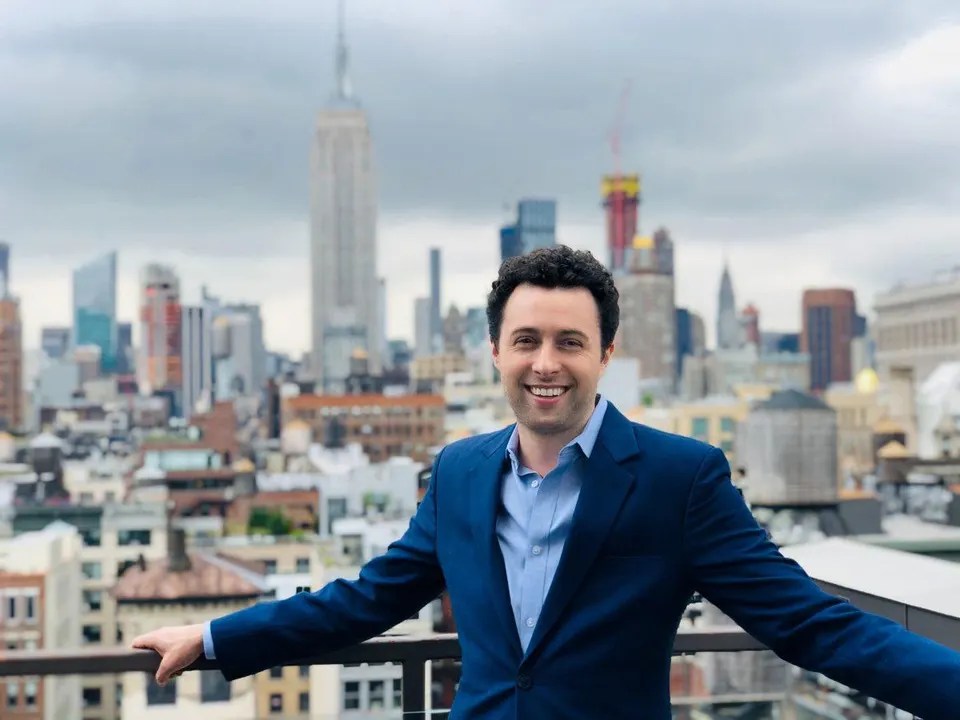
Jesse Stern, Founder of KoreVoices
KoreVoices is an organization that builds positive, safe digital environments where peers tell stories and help one another through compassionate conversation. Twenty-four hours a day, their primarly Generation Z followers discuss issues around mental health, bullying, and relationships. Their posts have been viewed over 40 million times, and people have made over 80,000 comments. Every submission and comment is read, and more than 1,000 people have been referred to their professional partner organizations by means of the platform.
Megan Bruneau: What’s the story behind KoreVoices?
Jesse Stern: As a former journalist, I spent 10 years witnessing trauma firsthand while covering social issues, conflict, and natural disasters across Asia and The Middle East. When I returned from overseas, I became aware of a technology-informed societal shift and was driven to study it further using social media – one of the very tools I imagined to be impacting the shift. While doing so, I became aware of the massive rise in rates of depression, anxiety, and suicide in Gen Z (those aged 24 and younger). Through gathering information, I realized I was also providing a partial solution to the pervasive isolation and shame in young people.
Bruneau: What’s the most profound lesson that’s come out of your research?
Stern: We are living in the most digitally connected time in the history of humanity, but the loneliness that far too many people feel is palpable. The feeling that someone is not alone, and they have people around them who truly care, can be the thing that saves their life.
Bruneau: What mental health advice can you share with us?
Stern: Connect with friends online, but also make sure to connect in person. It’s really important to spend time with people close to you. It’s also vital to be vulnerable and talk about what you are feeling. Everyone goes through difficult situations and challenges, but your friends and loved one’s won’t know what you are going through unless you open up to them.
A comment from one of our community members sums it up well:
“Happiness comes from self-acceptance, friends with mutual weirdness, kindness to yourself and others. Mix in a little gratefulness and some passion for a talent or activity…and you’re set.”
Megan Bruneau, M.A. is a therapist & executive coach who interviews entrepreneurs on The Failure Factor Podcast. Follow her on Facebook, Twitter, & Instagram




0 Comments